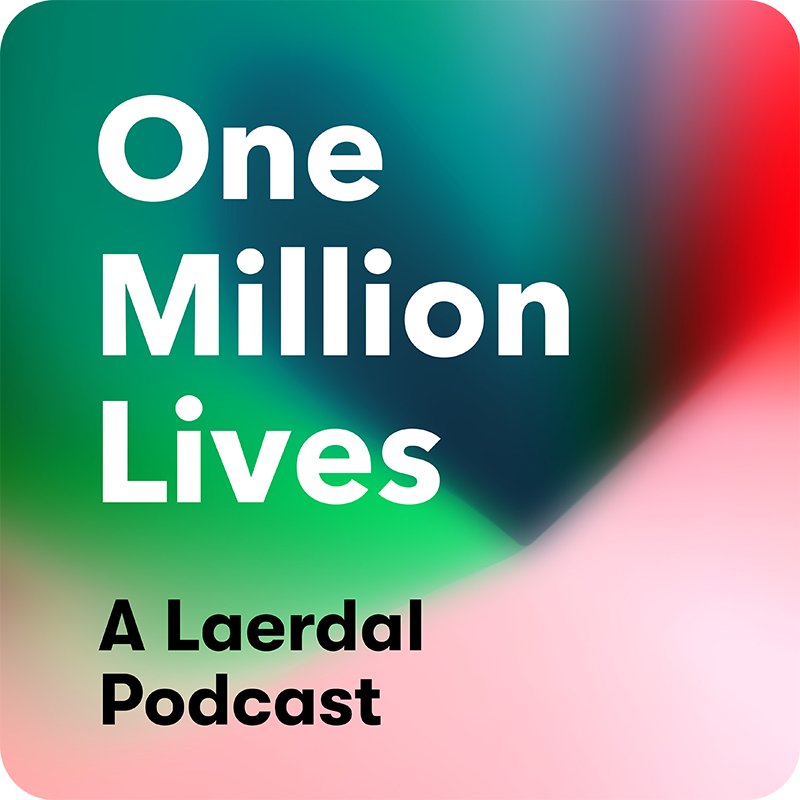One Million Lives - En Laerdal Podcast

One Million Lives - En Laerdal Podcast
Inspirerende intervjuer med temaer som kan bidra til å redde flere liv
Episode 6: Is the “minute spirit” in stroke care enough?
The Helsinki Stroke Model confirmed that stroke patient outcomes can be improved through rapid diagnosis, treatment, and efficient transfer of patients to stroke specialists. Lives have been saved through this model and a resulting sense of esprit in the stroke care community often called the “minute spirit”.
Hear Martin Kurz, MD, a Neurologist at Stavanger University Hospital and President of the Norwegian Stroke Association, share how the minute spirit is not enough. He and his colleagues applied a simulation-based continuous improvement program to the Helsinki model and achieved a record-breaking median 13-minute door-to-needle time!
Episode 5: How Can You Make Time for Clinical Simulation?
Finding the time to conduct clinical simulation in healthcare is a universal challenge. Simulation training is often viewed as time away from patients. In what might be called an “ultimate simulation challenge,” the birthing unit of one hospital went from providing 700 to 8,500 simulations for its midwives over one year. And it improved outcomes for its nearly 5,000 deliveries annually.
Listen to May Sissel Vadla, MD, a specialist in public health and PhD fellow at the University of Stavanger, talk about how she used coaches, competitions, daily training, and automatic feedback to achieve these breakthrough results.
Episode 4: Why is Kangaroo Care Important?
There has been a global call for Immediate Kangaroo Mother Care which has been described as a lifeline for newborns, especially for ill or premature babies. Kangaroo Care has often been disregarded, as healthcare focuses on higher technology to help babies survive. And yet immediate Kangaroo Mother Care has been proven to reduce mortality rates by 25%.
Listen to Siren Rettedal, MD, a neonatologist talk about how Kangaroo Mother Care saves lives and why it should be part of neonatal simulation training, whether higher technology is involved or not.
Episode 3: Does Patient Simulation Work?
Evidence shows that simulation-based training works. But there is always a human element involved. And so, the real question becomes what features in simulation-based training can make simulation effective? There are fundamentals that are essential for success.
Ross Scalese, MD, is an expert on simulation fundamentals. He is a Professor of Medicine and Director of Educational Technology Development at the Gordon Center, University of Miami Miller School of Medicine. Here are insights into what makes patient simulation successful.
Episode 2: Can Patient Simulation be used for Continuous Improvement?
Patient simulation is most typically used as a means for educating and training individuals and teams. Many institutions, however, are now using simulation to continuously improve systems. This can lead to improved patient safety, care efficiency, and systems improvement breakthroughs.
Victoria Brazil, MD is an emergency physician and educator at the Emergency Department of the Gold Coast Health Service, Australia. Hear her share how simulation can lead to system-wide gains.
Episode 1: What is the future of OSCEs?
The Objective Structured Clinical Exam (OSCE) has been a standard for assessing student performance in healthcare education. The COVID-19 Pandemic, however, forced many institutions to change their traditional approach to OSCEs.
Often considered the father of the OSCE, listen to Ronald M. Harden, MD, OBE, make the case that the OSCE is still relevant despite a changing educational context.
Hør podcasten og følg oss



Har du spørsmål eller tilbakemelding?
Vi vil gjerne høre fra deg. Har du spørsmål eller tilbakemelding på hvordan vi kan forbedre oss, vennlist kontakt oss på [email protected].